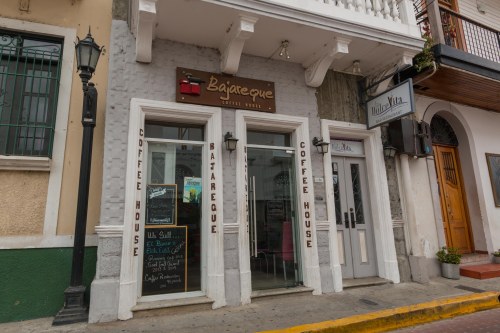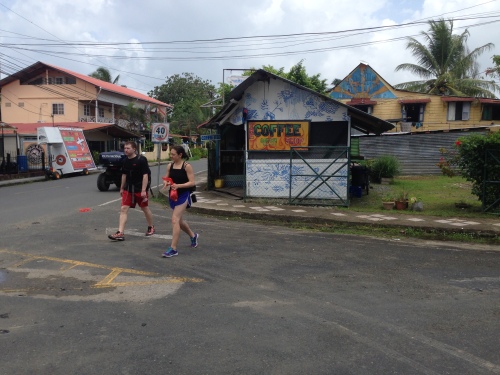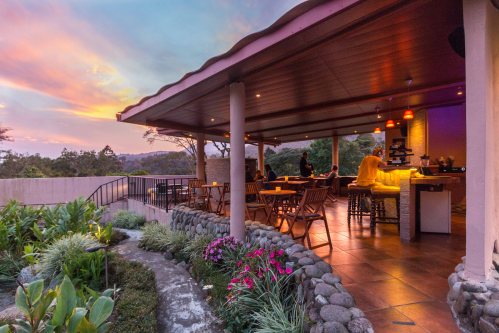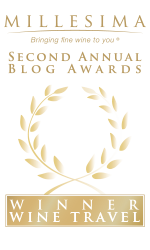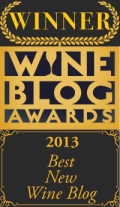In continuation from Part 1, and a repost of my original article in USA Today.
Here’s the ultimate list of where to eat, drink, play, and stay while enjoying Panama’s best coffees and rums.
ON THE COFFEE TRAIL
Panama City
Because Panama’s best coffees are expensive and were, until now, marked for export only, the third wave coffee scene in the city remains nascent. Currently, only two noteworthy roasters with retail cafes operate around town.
Bajareque (multiple locations) Locals use the slang term “bajareque” to refer to the mist that shrouds the coffee trees in Boquete. Owned by Wilford Lamastus, son of Elida Estate producer (also Wilford Lamastus), the narrow flagship roastery and café in Casco showcases the family’s beans. Try a cup or buy a bag of Geisha from the famed El Burro Estate. On a hot day, grab one of the best pre-bottled cold brews you’ll ever drink. The coffee’s natural sweetness will convince you there’s sugar inside.
Café Unido (multiple locations) The second outlet of this local (and most prolific) coffee roaster is in the American Trade Hotel. They offer pour overs from a rotating selection of Panamanian producers, fermentation styles, and regions, and always have Geisha by the cup or as freshly roasted beans to take home.
Casa Sucre Coffeehouse Located on the ground floor of a renovated Spanish colonial home from 1873, the American owners of this airy café, have fostered personal relationships with specialty coffee growers including Cafe de la Luna, Bajareque, and Finca Lérida, to name a few. They focus on espresso-based drinks more than filter brewing methods.
Bocas Town, Bocas Del Toro
Getting to Bocas requires a 4-hour drive from Boquete (or a short flight from Panama City.) The lure of the sea is strong, especially after residing in the cool mountains for a few days. The $20 bus service, run by Hola Panama, departs from downtown Boquete and shuttles back and forth daily between coast and hills.
The Coffee Shop Bocas This idyllic island sports Caribbean charm and a laidback lifestyle that’s infectious. People tend to show up and never leave. Such was the case for the nephew of Elida Estate owner Wilford Lamastus, Ernesto Velasquez. He has set up an outpost in the bohemian town with exclusive rights to sell his family’s coffee, naturally. Open daily, he offers different preparations from filtered brew to iced coffee. And there’s probably nowhere else in the world you can drink geisha from a tin shack by the beach.
Visiting a Coffee Farm
Boquete
The easiest way to visit Boquete is to fly from Panama City to David on Copa or Air Panama, and then take a bus into the mountains. If you are staying at Finca Lérida, staff will collect you for the hour-long drive. Surprisingly, the town of Boquete offers few retail café opportunities to try great, local coffee (a major, missed opportunity). You need to head to the farms.
Elida Estate World-renowned coffees from this property owned by the Lamastus family, can now be accessed by consumers in situ. Just two weeks ago did the family begin accepting tours, although anticipate a rustic experience, as expected from a working farm. They own two choice sites on steep hills skirting Baru Volcano, the highest area of the country, and grow Catuai, Typica, Bourbon, and the coveted Geisha. Tours last 2-3 hours, include a cupping, and the chance to buy coffees at the end. Book at local hotels or through Bajareque coffee shop in Panama City.
Finca Lérida Not 200 meters from Elida, but a world away in experience, this farm specializes in coffee tourism, less so in export quality specialty coffee. Enjoy an informational walk through the coffee trees, followed by the processing center, and finish with a cup of joe in their café. Snag bags of beans for gifts in their store.
ON THE RUM TRAIL
Panama City Cocktail Bars
Panama City’s drinking scene is on the cusp of a boom. For now, you’d call it burgeoning, but big names from New York hope to close a deal on a new spot imminently. In the meantime, the mood of the more sophisticated venues leans towards “yesteryear;” a nod to 1920s speakeasies born of American Prohibition coupled with the thriving social culture of Panama during that time.
American Trade Hotel Order a drink prepared with rum and fresh fruits in the breezy Lobby Bar. Restored details (tile floors, wainscoting), and a mix of modern and period furniture set to a soothing palette of cream and blue, summons the refined elegance of a bygone era.
Geronimo Designed to evoke a clandestine speakeasy, this bar behind an art gallery is not very well hidden. But you’ll forgive the concept flaw after sucking down a few cocktails imbued with Ron Abuelo, especially after joining one of the free salsa classes hosted on the gallery floor.
Hooch The most recent to open, Hooch also boasts the most ambitious mixology program focused solely on the art of the drink. The name references Prohibition Era booze, the theme of the bar set in a former motorcycle shop. Owners produce homemade syrups and bitters for a range of signature creations.
Visiting a Distillery
Ron Abuelo in Pesé
Whether through an organized group or driving yourself independently, rum connoisseurs should not miss visiting the Ron Abuelo distillery. Uniquely for the country, they control 100 percent of their production process: from growing and hand-harvesting the sugarcane, to distilling and aging the spirits at their estate. Workers continue to transport a small percentage of cane to the distillery by ox and cart, which you’ll see on your visit, along with the full production process, from field to still.
After the tour, head into the tasting room for a guided explanation of each of their four core expressions, all of them dark and oak-aged. As an additional reward for making the trek, you’ll get to sample their recently released trio of cask-aged rums using oloroso sherry, cognac, and port barrels.
WHERE TO STAY
Panama City
The American Trade Hotel Set in a landmark building, this Ace Hotel property repackages old colonial bones into a stylish, modern throwback. Ornate tile floors, high ceilings, and indoor trees, create a movie set atmosphere. Amenities include an excellent restaurant, coffee shop, and jazz club, plus small rooftop pool.
Boquete
Finca Lérida For a quintessential coffee farm experience, stay in one of the expansive rooms of this lush hotel. Nestled into the mountains, rambling gardens host a diversity of avian life, especially hummingbirds. Join a coffee tour in the morning, hike the hills in the afternoon, and dine on fresh potatoes and locally caught trout in the updated restaurant. They also brew a decent coffee-infused beer.
The Inn at Palo Alto Slightly closer to the action of downtown, but far enough removed to be tranquil, this small inn has tropical flower-filled grounds set alongside the river. Rooms are modest but colorful and roomy. Take coffee and fresh cooked breakfast on the patio and watch the sun rise over the valley.
Bocas del Toro
The Hummingbird on Bluff Beach Recently opened by two entrepreneurs who fled the corporate world, this off-grid eco-lodge boasts stylish details with modern conveniences on a wild stretch of surfing beach. At breakfast, good coffee and ripe exotic fruits are precursor to tasty egg dishes. Lunch and dinner also available. At night, locals and guests mingle around the bar.
Hotel Bocas del Toro Billing itself as a boutique property, this hotel located downtown on the waterfront suits visitors who prefer to be within walking (or stumbling) distance of the bustling nightlife scene. Décor is mariner-inspired with accents of teak and hardwood floors.

